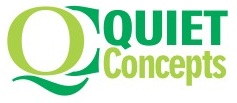Challenges facing curriculum implementation in secondary schools
₦10,000.00 ₦3,000.00
Description
CHAPTER ONE
INTRODUCTION
- Background to the Study
A curriculum is a set of courses, course work and topics, offered in schools. A curriculum in simple terms is the aggregate of subjects/courses and topics that are being or should be offered in schools (Arthur, 2017). Since when Nigeria got independence, teachers have contributed immensely to the overall socioeconomic growth of Nigeria, hence, their impacts on the national development cannot be underestimated because through them the implementation of education program and policy and curriculum has been translated and as well implemented in the interest of the nation’s education system. Be that as it, teachers education then form the basis of sound and proper implementation of school curriculum in Nigeria. It success cannot be achieved without teachers education. It is their education and professional delivery that can guarantee successful implementation of curriculum in Nigeria. The issue of school curriculum in Nigeria over the years has become a national discourse. Many are grappling on what and what should be a part and parcel of the curriculum and what should not. A well developed school curriculum should serve the purpose of addressing problems and as well improve program such that can lead to the successful implementation of school curriculum.
One of the goals of teaching and learning process is to produce an individual who will live as a useful and effective member of the society. The amount and quality of the expected behavioural outcomes which are manifested in learners are determined through the process of subject implementation and evaluation. While implementations are the realization of an intended change, evaluation is the process of identifying the strengths and weaknesses of the curriculum. Apart from appraising the behaviour of students so as to find the change in their behaviour which is sought in education, evaluation must involve more than a single appraisal at any one time, to see whether change has taken place, it is necessary to make an appraisal at an early point and other appraisals at later points to identify changes that may be occurring. This goes to show that you cannot evaluate or assess effectively with just one assessment, you need several and preferably in a continuous system (Samuel, 2014).
In Nigeria, poor curriculum implementation is a major problem. There is a great disparity between policies formulated by government and the actual implementation of these policies. Policy makers often vary from policy implementers, hence, this gaps becomes a problem in course of implementation. It is not just restricted to the implementation phase, but also curriculum development in general. Having proper curriculum makes for a sound educational and academic sector because the students will be taught with respect to recent happenings and developments (Arthur, 2017).
Another fundamental issue concerns is on what to implement and how to implement it. Adequate curricular provisions assist in determining what to implement. Once the government curriculum incorporates all the necessary experiences and activities that could ascertain competence the evaluation procedure, if properly conducted can serve as a good method of evaluation while implementation is the act of taking action towards the realization of the intention of a curriculum plan. Many factors combine to determine whether or not this realization is met. In an attempt to address the focus of this study, such issues affecting the implementation and evaluation of government curriculum shall be examined. Arising from such a survey, this study therefore attempts to determine Challenges facing curriculum implementation in secondary schools in Nigeria.
1.2 Statement of the Problem
The secondary school curriculum is developed and monitored by the Federal Ministry of Education. Due to the importance of curriculum in educational quality, the Ministry has made efforts to strengthen the operations of the institute. However the developed curriculum has to be implemented. It is the government policy that the curricula developed by the Federal Ministry of Education be implemented in all public and private schools which use the 9-3-4 system of education.
The mandate of the secondary school education as designed by The Ministry of Education states that The Ministry will: (1) formulates policies on secondary education and guides the inputs from the States to ensure alignment with the National Policy as well as NCE decisions. This is achieved through the Chairmanship of JCCE reference Committee and Plenary Session Secondary Education. (2) Collaborates with relevant agencies, NGOs and Development Partners in capacity building and co-curricular activities in secondary education as a means of boosting learning and providing support to formal classroom. To this effect, there is encouragement and collaboration with NGOs in debates and quiz competitions. (3) Deals with matters concerning Public Examinations Bodies like NECO and WAEC. (4) Collection and Collation of Data on Federal Unity Colleges, State and Private Schools. (5) Handles issues concerning professional associations like Annual Conference of Principals of Secondary Schools (ANCOPSS), National Union of Teachers (NUT), National Association of Proprietors of Private Schools (NAPPS). (6) Participates in the coordination of the Safe Schools Initiative in collaboration with Presidential Committee on the North – East Initiative (PCNI), Federal and donor groups. Currently, students from the areas of insurgency are in various FGCs in the North Central and North West zones (Federal Ministry of Education, 2019).
With these mandates, there is still lack of a clear measure in determination of who is really denying the needy students the chance to benefit adequately. Schools have also experienced inadequate allocation and late disbursement of funds. There has been in servicing of science and mathematics teachers through public schools like Oyo State. On this, the research tends to carry out a study on the challenges facing curriculum implementation in secondary schools.
1.3 Purpose of the Study
This study investigates the challenges facing curriculum implementation in secondary schools: a case of selected secondary schools in Oyo State.
Specifically, the study intended to:
1) Investigate impact of the Federal Ministry of Education policy on curriculum implementation in secondary schools.
2) Establish the impact of recruitment policy on curriculum implementation in secondary schools in Nigeria.
3) Find out challenges facing secondary schools on curriculum implementation in secondary schools in Nigeria.
1.4 Research Questions
The following research questions will be raised to guide the study:
1) Does the shortage of staff affects curriculum implementation in secondary schools?
2) What are the effects of school assessment on curriculum implementation in secondary schools in Oyo State?
3) How does staff remuneration affects curriculum implementation in secondary schools in Oyo State?
4) What challenges do schools face in the implementation of curriculum in Oyo State?
1.5 Significance of the Study
This study attempted to bring to focus information about the major challenges that affect curriculum implementation in secondary schools to maintain education standards. The information obtained from the research study will be of great importance to the government policy makers to support curriculum implementation fully. The government will strictly enforce legislation to prevent misappropriation of government funds meant for schools. From this study the Ministry of Education will find means to improve education standards and encourage proper ways of bursary allocation to needy students in secondary schools and improve on timely disbursement of educational funds to schools. This will enable such organizations understand the need of allocating more funds to secondary education to assist in curriculum implementation as well as supporting development projects of schools in their regions.
Also, secondary school teachers will find this information vital. They will be able to understand the environment they are working in and seek for better ways of dealing with policy issues in curriculum implementation. The teachers will further have better understanding of the role of parents in the implementation of the curriculum.
In addendum, the community will become more sensitive on the need to play a proactive role in curriculum implementation in order to attain sustainable school development. Curriculum developers will also use the outcome of this study to make curriculum that can easily be implemented by all schools without many obstacles and compromising standards at the same time. More so, curriculum evaluators will also use the information to set exams especially practical papers that can be attempted by all students without segregation due to socio-economic forces.
Moreover, Secondary School Management in each State in Nigeria will also use this information to address the shortages of manpower in secondary school and forge a better way of utilizing the teachers in the field. The commission will be able to look for better ways of remunerating and motivating teachers working in different socio-economic backgrounds.
Conclusively, secondary school principals and educational team will also use the information in the management and support to schools to check on service delivery.
1.6 Scope of the Study
The study focused on the challenges facing curriculum implementation in secondary schools. The scope of this study is some selected secondary schools in Oyo State.
1.7 Operational Definition of Terms
CURRICULUM: In this study, it refers to the subjects taught at secondary school that the learner is exposed to.
CURRICULUM IMPLEMENTATION: This refers to putting in practice the officially prescribed course of study, syllabi and subjects by the teachers in the school.
SCHOOL: This refers to the institution in which learners come to with the view of covering the secondary school curriculum.
EDUCATION: In this study, it refers to attainment of knowledge and skills that enable the learner to pass both internal and external examination.
CHALLENGES: This refers to the problems facing the implement of curriculum in secondary schools.







Reviews
There are no reviews yet.